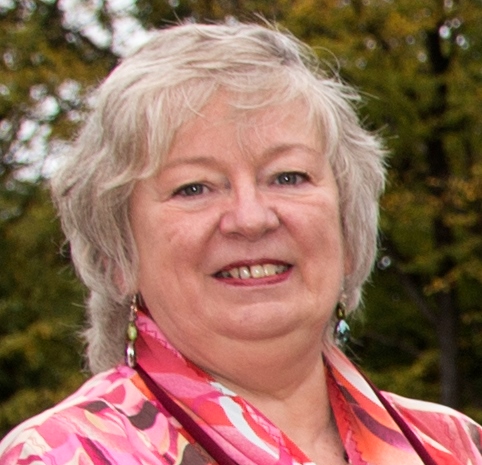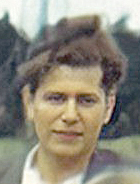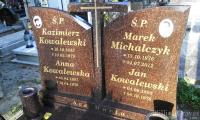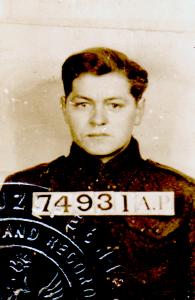- Birth*: Kazimierz Kowalewski was born on 16 October 1933.2
- He was the son of Jan Kowalewski farmer and Anna Lemanska.
- (Deceased) Death*: Kazimierz Kowalewski died on 10 May 1979 at age 45.2
- Name Variation: Kazimierz Kowalewski was also known as Kajek.
- (Witness) Photograph: He is in this photograph taken in 2014 at Cmentarz Oliwski, Gdansk, Pomorskie, Poland,
 , along with Jan Kowalewski farmer, Anna Lemanska, Marek Michalczyk headstone - MI reads
, along with Jan Kowalewski farmer, Anna Lemanska, Marek Michalczyk headstone - MI reads
[photo] SP Kazimierz Kowalewski * 16.10.1933 † 10.05.1979
Anna Kowalewska * 05.04.1897 † 18.04.1976
[photo] SP Marek Michalczyk * 13.10.1976 † 04.07.2012
Jan Kowalewski * 04.08.1895 † 06.10.1978
Ave Maria.2 - (Witness) Military Service: Kazimierz Kowalewski witnessed the beginning of military service of Brunon Kowalewski electrician and the Polish Free Army in Britain between 1939 and 1948; Bruno Kowalewski chat about 1989
First session
Notes made after our chat (& fairly disjointed)
Gdansk – free State – Lived Matania (Matarnia)
4am handing out sweets – papers from father – occupied – Prussian soldiers
2 months later – go to Germany to work – took to Bavarian border near Austria – 200 Polish prisoners working in camp – power stations – private digs – paid apprentice wages – Swiss border just across the river. Whole shift went across border. Refugees for 3 days. Polish authorities in Switzerland – wanting recruits for Polish Army in France. – Got out of France 3 / 4 weeks before Dunkirk – youngsters – Portsmouth, then to Catterick – training – Norway by ship – submarines – back to St Andrews (via Greenland?). Back to Catterick – Algiers – more training – Alamein after battle- chasing back thru’ desert. Back to UK – regrouped near Greenock. 2 wks after D-Day.
Polish 1st Tank division – nr Aachen wounded. Sherman tanks. Polish hosp past Perth. 1000 in cemetery there. Shipped back to UK after war. Reenlisted in ’46 at Buddon as British Army. Demobbed in ’48 in Dec – one of the last.
Brother Hanny (Jan) was in Italy – demobbed from Barry / Buddon – back to Poland. 6/8 months in Labour camps because of being in the army.
Brother Franek conscripted into German Army 1945 – infantry. Wounded in Germany.
Brother Kajek in Airforce V1/2 bombers. Taken to Russia for 18 months. Took whole factory to Russia & reassembled. Poles taken for 3 months for Communist education. E Germans sent home, W Germans stayed.
Bruno Kowalewski chat2 about 1989
Second session
Notes made after our chat
When war (WW2) broke out the Germans needed youngsters to work in the industries. Volunteers were asked for and sent to various areas in Germany. I was sent to the Rhur, near the Swiss border (this under query as the Rhur is NE Germany, not South), about 15 miles or so. We were trained as electricians. I was an apprentice.
By this time there were also Polish POWs over the border – boats – about 100 men.
Swiss authorities – kept in camp – only fed one meal a day – sign up – 3 meals.
Taken to France – disorganised etc – shipped out just 3 weeks before Dunkirk, with French aristocrats etc. Landed Plymouth.
Trained at Catterick near Doncatser. Stationed at or near Dundee.
Sent to Algiers – wounded – sent back to Dundee etc.
When war ended Polish soldiers were given a new uniform, rifle and 5 rounds and put on a ship which sailed from Plymouth to Gdansk. When the ship docked and the men disembarked, they were immediately disarmed (margin note ‘Stalin’). Some were even killed. The Captain of the ship would not let any of the others leave, turned around and sailed for Plymouth again.
Eventually demobbed in ’47. Evident that Poland was no place to be at that time – Communist rule – Stalin wouldn’t have the Poles who had fought for Britain – no work, no food. Very little choice but to settle in Scotland. At least there was some sort of expatriate community – some 500,000 men.
August 2015
Son Bob Carson recalls information from father.
Him & friend called up at same time – went off to railway station – train they were supposed to catch was going (say) North, so they went the opposite way.
Clarification that they would be serving with German army.
Clarification – probably going west, so they went South – by train – missing bit re Border of Switzerland – discussion re route.
Travelling with best childhood friend.
By the time they got to the border, they had met up with others – and crossed the border with them.
Ties in with getting in a boat and rowing overnight – maybe Lake Geneva.
Now in Switzerland – get themselves up to Red Cross or Embassy – given travel docs – which took them to Britain – likely by sea.
Confirmation of arrival in Portsmouth.
Now in Polish Free Army? –
Eventually posted to Barry/Buddon camp with the Polish Free Army
Tank fire – Dad lost his hair and it grew back different colour – ginger as opposed to ?
In tanks corps - What did he do? Mention of Brenn Gun carriers.
At Buddon he was involved in the cookhouse. Waited at table for officers. Officers mess. When they got the chicken (or something) – they used a machine gun as the birds (maybe geese, ducks) flew over Buddon (resourceful people!)
In Europe with the tanks – mention of Monte Cassino – big Polish involvement there – not clear, not talked about. Didn’t talk about Europe. Probably quite unpleasant.
Monte Cassino – Italy – did he serve in other countries? That’s unclear.
Change of name – phone book Carson closest to Kowalewski – OR – box of Carson chocolates at Mum’s bedside in after birth of first child. She had difficulty spelling Kowalewski. Dad told Pat that Kowalewski in Poland was as common as Smith.
His Polish was ‘Northen’ Polish – like Gaelic is to Scots and was different. – Maybe a dialect?
Able to speak Polish to the end of his life.
Michael Demzcuk fought on 3 sides during the war.
Metic was a best friend. He went back to Poland at the end of the war. To his family. He said that he would send a photograph to depict the state of things – if they were standing up , everything was fine. When the photo arrived in Scotland, the guys were all lying down.
Kajek sentenced to 5 years down the salt mines because Dad hadn’t come back.
We met Metic when we visited Poland in 1963. He wanted to hide in the car and come away with the family.3,4 - [S69] Website Billion Graves (www.billiongraves.com).
- [S69] Website Billion Graves (www.billiongraves.com) images by Piotr_Smiatacz - 10711 images contributed July 14, 2014 - June 11, 2015 [Sep 2015].
- [S43] PCC conversation with Robert/Bruno in about 1989.
- [S43] Son RC recalled in August 2015 conversations with Robert/Bruno.
Kazimierz Kowalewski1
M, #5732, b. 16 October 1933, d. 10 May 1979
Last Edited: 20 Nov 2021
Parents:
Father*: Jan Kowalewski farmer b. 4 Aug 1895, d. 6 Oct 1978
Mother*: Anna Lemanska b. 5 Apr 1897, d. 18 Apr 1976
Mother*: Anna Lemanska b. 5 Apr 1897, d. 18 Apr 1976
Relationship:
Uncle of Robert Carson 'the Computer Doctor'
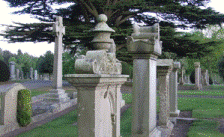 Genes on the Web
Genes on the Web